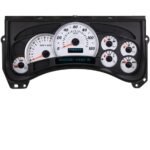If your car radiator is overheating, check for coolant leaks and ensure the fan is working. Car radiator troubleshooting is essential for maintaining your vehicle’s cooling system.
An overheating radiator can lead to engine damage if not promptly addressed. By understanding the common issues and their solutions, you can effectively troubleshoot your car’s radiator and prevent potential breakdowns on the road. Whether it’s a leak, a faulty thermostat, or a clogged radiator, being proactive in identifying and fixing these issues can save you time and money in the long run.
In this guide, we will delve into the various troubleshooting steps you can take to keep your car running smoothly and avoid any radiator-related problems.

Common Radiator Issues
Overheating
An overheating radiator can be caused by a variety of factors, including low coolant levels and a malfunctioning thermostat. If your car is frequently overheating, it’s essential to check for any leaks, blockages, or a damaged radiator cap.
Leaking
Radiator leaks are a common problem that can lead to coolant loss and engine overheating. Inspect your radiator, hoses, and connections for any signs of leakage, such as puddles of coolant under your car or a decrease in coolant levels. Addressing leaks promptly can prevent further damage to your vehicle’s cooling system.
Identifying The Problem
When your car radiator is acting up, identifying the problem is the first step towards finding a solution. Visual inspection and checking coolant levels are essential tasks in troubleshooting radiator issues.
Visual Inspection
- Check for signs of leaks around the radiator and hoses.
- Inspect the coolant color – it should be bright and free of debris.
- Look for cracks or damage on the radiator itself.
Checking Coolant Levels
- Open the radiator cap when the engine is cool to check coolant levels.
- Ensure the coolant is between the min and max marks on the reservoir.
- Top up the coolant if it’s low to prevent overheating.
By conducting these visual inspections and checking coolant levels, you can quickly pinpoint the issue with your car radiator and take appropriate action to keep your vehicle running smoothly.
Diy Radiator Fixes
Radiators are essential for keeping your car cool, but when they encounter problems, it can be a major inconvenience. DIY radiator fixes can help you troubleshoot common issues and get your car running smoothly again. Here are some simple fixes you can perform to address issues with your car’s radiator.
Replacing Hoses
Check for leaks or cracks in the hoses connected to the radiator. Over time, hoses can become brittle and prone to damage, leading to coolant leaks. You can easily replace these hoses to ensure proper coolant flow through the system.
Flushing The Radiator
Rust or sediment buildup in the radiator can impede coolant circulation and heat transfer, causing the engine to overheat. Flushing the radiator can help remove these contaminants, improving the radiator’s efficiency. Use a radiator flush solution and follow the manufacturer’s instructions for best results.
Preventive Maintenance
Maintaining your car’s radiator is crucial to ensure its optimal performance and prevent any unexpected breakdowns. By implementing a few preventive maintenance measures, you can save yourself from expensive repairs and inconvenience in the long run. Regular inspection and using the right coolant are two essential aspects of radiator maintenance that you should pay attention to.
Regular Inspection
Regularly inspecting your car’s radiator can help you identify any potential issues before they turn into major problems. It’s a simple process that you can easily perform at home. Here’s what you need to do:
- First, make sure your engine is cold before you start inspecting the radiator. This will prevent any risk of burns.
- Open the hood of your car and locate the radiator. It’s usually positioned at the front of the engine bay.
- Check for any visible signs of leaks, such as coolant stains or puddles under the car.
- Inspect the radiator fins for any debris or dirt buildup. Use a soft brush or compressed air to clean the fins if necessary.
- Check the radiator cap for any signs of damage or wear. A faulty radiator cap can lead to pressure buildup and coolant leakage.
- Make sure all hoses and connections are secure and free from cracks or leaks.
Using The Right Coolant
Using the correct coolant for your car’s radiator is vital to maintain its cooling efficiency. The coolant not only helps regulate the engine temperature but also prevents corrosion and rust. Here are a few key points to remember:
- Refer to your car’s owner manual or consult a professional mechanic to determine the recommended coolant type for your specific vehicle.
- Avoid using tap water as a coolant, as it can cause mineral deposits and impurities to build up in the radiator.
- Always use a 50/50 coolant-to-water ratio for best performance. This balanced mixture provides adequate cooling and protection against freezing in cold temperatures.
- Regularly check the coolant level and top it up if necessary. Low coolant levels can lead to overheating and engine damage.
- Consider flushing and replacing the coolant at regular intervals, as recommended by the manufacturer or your mechanic. Over time, the coolant can become contaminated and lose its effectiveness.
By incorporating these preventive maintenance practices into your car care routine, you can keep your radiator in optimal condition and ensure your vehicle runs smoothly. Regular inspections and proper coolant usage will help you identify and address any potential radiator issues before they escalate, saving you time, money, and frustration in the long run.
When To Seek Professional Help
While it’s always good to have a basic understanding of car radiator troubleshooting and perform some DIY fixes, there are situations where seeking professional help is essential. Here are three instances when you should reach out to a qualified mechanic:
Unusual Noises
If you notice any unusual noises coming from your car’s radiator, it’s best to have it inspected by a professional. Strange rattling, hissing, or gurgling sounds could indicate a serious issue that requires expert attention. Trying to fix the problem on your own may lead to further damage and costlier repairs in the long run.
Persistent Issues
While occasional overheating or minor leaks can be resolved with simple DIY solutions, persistent issues require professional intervention. If you find yourself constantly dealing with coolant leaks, repeated radiator blockages, or frequent overheating, it’s time to consult a professional. These problems can be signs of more complex underlying issues that need expert diagnosis and repair.
Coolant Contamination
If you discover that your coolant is contaminated with oil or any other foreign substance, seeking professional help is crucial. Contaminated coolant can lead to engine damage, reduced cooling efficiency, and other serious problems. A professional mechanic will assess the situation, determine the cause of the contamination, and implement the necessary repairs to prevent further damage.
Remember, while it’s important to educate yourself about car radiator troubleshooting, there are limits to what can be done without professional knowledge and tools. When faced with unusual noises, persistent issues, or coolant contamination, entrusting the problem to a qualified mechanic is your best course of action.
Frequently Asked Questions For Car Radiator Troubleshooting
How Do I Know If My Car Radiator Is Leaking?
If you notice puddles of coolant under your car, low coolant levels, or overheating, it’s likely that your radiator is leaking.
What Causes A Car Radiator To Overheat?
A car radiator can overheat due to low coolant levels, a malfunctioning thermostat, a faulty water pump, or a clogged radiator.
How Often Should I Flush My Car Radiator?
It is recommended to flush your car radiator every two years or every 30,000 miles to prevent coolant contamination and maintain optimal performance.
Can I Drive My Car With A Damaged Radiator?
Driving with a damaged radiator can lead to serious engine damage. It’s best to have it repaired or replaced as soon as possible.
How Much Does It Cost To Fix A Car Radiator?
The cost to fix a car radiator can range from $200 to $900, depending on the extent of the damage and the type of vehicle you have.
Conclusion
In the end, understanding the common radiator issues and troubleshooting methods can save you time and money. Regular maintenance and prompt attention to any signs of trouble can prevent costly repairs. By following these tips, you can ensure your car’s radiator operates efficiently and effectively.
Keep your vehicle running smoothly with proper radiator care.





